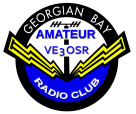2024-01-13, 09:33:59
![[Image: arw-header-700.gif]](https://ci3.googleusercontent.com/meips/ADKq_NZYpA6_kWicSWWkmGolruSWwKiiHBXMJN080WfNa9SUtuxnehIcw58WyDu9-C9roEHSiCIA7ASrWFstaFlc5NAmOTNipYnY8hnWH3mQZPJ98wClO_KomxI-19If2W5H7C4ByEBpjp6tEszNpbXS-oDpt_A=s0-d-e1-ft#https://s3.amazonaws.com/emma-assets/b3h3/eb034ed72fd9f0ea240405f6861b43b1/arw-header-700.gif)
Issue 315 January 13th, 2024
Top links
ARRL responds to FCC proposals
ARRL concluded that the FCC should also remove the bandwidth limits that apply uniquely to the data modes on the subject bands.
ARRL
In praise of old meters
There were two obviously burned resistors and a leaking battery—an easy repair to put this meter back into service.
Hackaday
SDU-X: Software defined data transmission with ultrasonic transducers
SDU-X uses two ultrasonic transducers mounted on 3D printed parabolic dishes.
RTL-SDR
open890
open890 is a web-based UI for the Kenwood TS-890S Amateur Radio, and features good usability, clean design, and high-speed bandscope/audio scope displays, among other features not available either on the radio itself, or in the ARCP remote control software.
N0RUA
144 MHz EME Newsletter
Since 2003 I've produced the monthly 144 MHz EME Newsletter focussing on 2m EME activity. The newsletter comes free of charge and is my personal courtesy to the Ham community.
DF2ZC
What's new at DLARC January 2024
On January 1, 2024, content published in 1928 in the United States entered the public domain. But what about the Amateur Radio content?
Zero Retries
Investigating creeping ground fault
I decided to make a device that could monitor the residual current of my mains installation over time to see if the if it would uncover anything.
Dzl's Evil Genius Lair
Top 5 Parks on the Air tips for activating a park
The top 5 tips to help you make the most of your park activations and ensure a successful and enjoyable experience.
N1JUR
Video
External meter display and tune button for Yaesu FT-991a
Build a Yaesu external meter display and tune button yourself with an Arduino NANO.
PA0LUX
Build a Ham transmitter with a Raspberry Pi Pico
Using only a few external components build a Ham Radio transmitter covering 0.5-30 MHz.
101 Things
Handheld spectrum analyzer review
The Jstvro spectrum analyzer covers 240-960 MHz on the first port and 15 - 2700 MHz on the second port.
Tech Minds
Meet the students using radio waves to contact the ISS
A high school club in Pennsylvania is making waves — radio waves, that is.
TODAY




